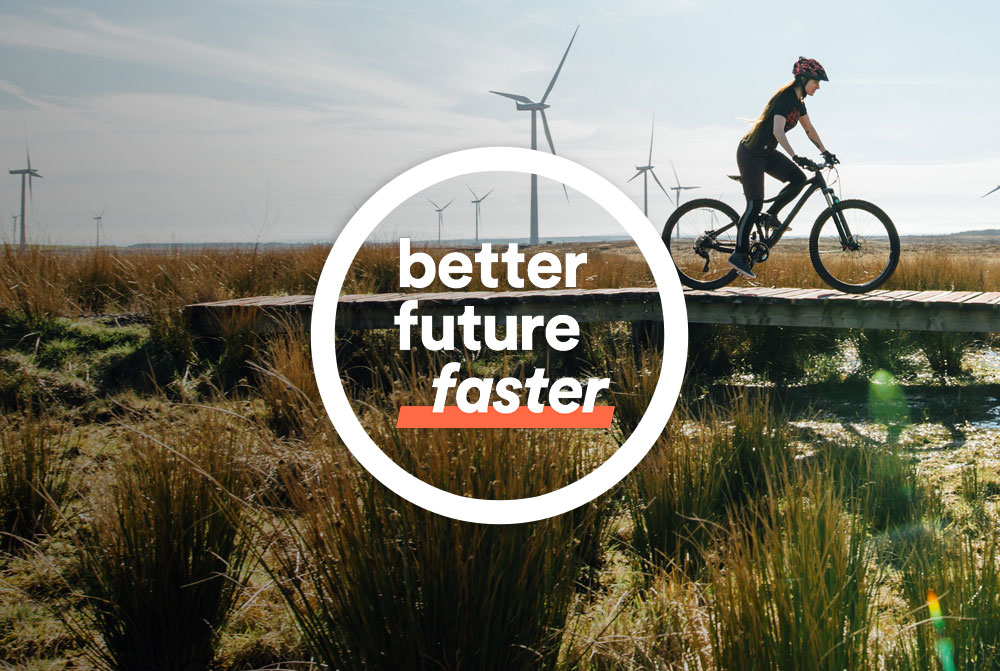Zero-Carbon Transition: March signals of change
The We Mean Business coalition
As the world grapples with the devastating impacts of the coronavirus, our thoughts are with those affected by the illness and those struggling to carry on despite incredibly challenging conditions – particularly those at the frontline of caring for the sick and vulnerable.
At this difficult time, companies around the world are stepping in to help with the global effort, showing how they can protect lives, act decisively and help curb the contagion. Find out how business is responding to COVID-19 here >.
Companies are also recognising the importance of building greater resilience at this critical time, protecting against growing threats including climate change and helping to steer a renewed pathway to the zero-carbon future.
Here are just some of the signals of change from the month, demonstrating the transition to a resilient, zero-carbon future remains underway. #BetterFutureFaster
Zero-Carbon Economy
The European Union is set to make ‘greening the economy’ an essential part of its efforts to recover from the impacts of the COVID-19 crisis, as calls mount for all governments to consider climate impacts and resilience amid long-term spending plans. South Korea, the world’s seventh-largest carbon emitter, committed to reach net-zero carbon emissions by 2050. The number of companies committed to the Business Ambition for 1.5ºC campaign has surpassed 200. The world’s largest telecoms company – AT&T – has had its science-based target approved. UK greenhouse gas emissions fell for the seventh consecutive year in 2019, government figures show. And earlier this month, the European Commission unveiled a Europe-wide ‘Climate Law‘, that if approved would legally require all EU members to transition to net-zero economies by 2050.
Zero-Carbon Power
California committed to reducing greenhouse gas (GHG) emissions 56% by 2030, compared to 1990 levels, and blocked the development of new natural gas plants. The world’s wind power capacity increased by fifth in 2019, thanks to record installations, while the number of coal-fired power stations under construction or development globally fell for the fourth year in a row.
Italian power utility A2A has had its science-based target approved and Swiss wealth manager Credit Suisse has committed to switch to 100% renewable electricity with RE100. Communities across Scotland are using income from wind farms to help them cope with the impacts of the coronavirus, while the UK Prime Minister has given the go-ahead to onshore wind development. Southeast Asia’s largest solar farm is due to start operations later this year. Emissions from coal power saw their biggest annual fall in decades last year at -2%, a report has found. And French luxury goods company Chanel has committed to 100% renewable electricity with RE100; Chanel is also committed to the Business Ambition for 1.5ºC campaign.
Zero-Carbon Transport
Swiss transport and logistics company Kuehne + Nagel International AG, Canadian transport and logistics company Delmar International, US freight-hauling rail company Union Pacific Railroad and Brazilian car rental company Movida have all committed to set a science-based target (SBT). Danish pump manufacturer Grundfos has joined EV100 and Chilean airline LATAM Airlines Group S.A. has also committed to set an SBT. The UK government has said that cars must be replaced by public transport, cycling and walking as the “natural first choice” to get around in order to meet goals on climate change. The Washington State Senate voted to adopt California’s zero-emission vehicle regulations. General Motors has pledged to increase spending on electric and autonomous vehicles to $20bn by 2025 and claimed a battery breakthrough. And Peugeot owner PSA and BMW announced they are already compliant with the new EU CO2 rules, launched in January.
Zero-Carbon Built Environment & Heavy Industry
Brazil’s Vale – one of the world’s largest mining companies – has committed to set a science-based target. The UK introduced a new £800 million ($1 billion) subsidy to develop carbon capture and storage (CCS) infrastructure. The European Commission launched a “hydrogen alliance” to help develop hydrogen technology for transport. Korean tech giant Samsung has unveiled a new lithium battery that gives the same power at half the size, which could have implications for EVs and aviation. Two US construction and engineering firms have committed to set science-based targets: ARC Alternative and Renewable Construction and ARC Alternative and Renewable Construction. And Europe’s second-biggest publicly traded mall operator, Klepierre, has had its science-based target approved. The Canadian Steel Producers Association has set a goal to achieve net-zero carbon dioxide emissions by 2050. US infrastructure firm AECOM has had its science-based target approved and Dutch real estate Wereldhave has committed to set a science-based target. And the world’s largest industrial gas company Linde PLC has committed to set a science-based target.

